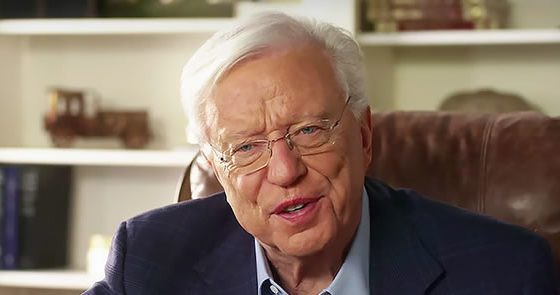What matters most in life is how we finish –not the past, our stupid mistakes, pains we suffered or the horrendous childhood we endured. A friend I’ll call Don saw that as he mended his battered relationship with his son.
Don came to Christ late in life. He knew he needed to ask his son’s forgiveness for all the pain he had inflicted on him before he could expect his son to listen to the claims of Christ.
At age 60, he took his 30-year-old son for a weekend of fishing. But his heart wasn’t on rods and reels. As they talked, Don gathered enough courage to say, “I just want to confess to you that I was an alcoholic and I was unfaithful. I know the family you grew up in and all the things I did brought great pain to you.”
Brad nodded. “That’s right, Dad, it did.”
Soon the younger man gushed forth a story of the pain and anguish a particular incident had caused him as a boy. He revealed the damage his father’s irresponsibility had inflicted on him and his mother — the humiliation of that event hadn’t faded away.
It hurt Don to sit patiently and listen to this retelling of the past.
“I’m sorry,” he said after his son unloaded his feelings. “Would you please forgive me? That must have really hurt. Would you please forgive me?”
This scene was repeated often as Don humbled himself constantly throughout the trip. Finally Brad broke. Bursting into tears, he clutched his father and held tight. That day they began rebuilding the razor-thin threads of their relationship.
Whatever your situation, the Lord can restore past damage. It is impossible to relive years gone by, but God can brighten the future. We have a lot to say about what happens from this day forward.
Trouble at Home
While alcoholism, drug abuse and other dysfunctional behavior affect millions of people, for millions more they aren’t a problem. It is the simple, day-to-day misunderstandings and irritations of family life that causes breaks. How we react and affirm our love for the person, despite our disagreements, makes the difference.
A few years ago our son, Joshua, went through a rough period. Whether you call it moodiness, adolescent rebellion or a bad hair day, he became a severe pain. He was disrespectful to my wife, Susy — talking back to her, disobeying, or shooting her rotten looks. He acted in similar ways toward his brothers and sisters.
Finally, one night at dinner, she told me what had been happening. When we returned home, we gathered everyone together to confront him. We told him what he had done wrong and how it had hurt others. Opening the Bible to First Corinthians 13, I asked him to read the famous chapter on love.
When he finished, I asked, “Do you love your mom?”
“Yes.”
“Is this the way you’ve been acting?”
“No,” he shook his head.
His brothers and sisters shared how he had been rude and thoughtless towards them. Susy listed ways in which he had shown disrespect or disobedience. He didn’t try to defend himself, because he knew it was true. Everyone warned him he had to clean up his act. But he also needed discipline.
“Baseball’s over,” I said, demanding his glove and bat. Then I banished him from shooting at our the goal hanging above the driveway: “Basketball’s over too. For the indefinite future, your free time is going to be filled up with chores and Scripture reading, plus writing down key verses. The kitchen is now yours too. Keep it clean after every meal and during the day.”
I took no pleasure in handing out punishment. But Joshua needed a severe course correction. He later revealed how this discipline made him realize that his conduct was wrong. It takes humility to admit mistakes, but that is the first step toward healing damaged relationships.
In our son’s case, he realized that he had been taking out his anger on everyone else in the family. If someone did something that Joshua didn’t like, he snapped at him. Anger is natural, but taking out your anger on others is wrong. I have struggled with these attitudes and wanted to help him avoid the problems and pain I caused in my life.
Scripture helped change his outlook. So did early-morning sessions with God. He saw how a daily quiet time gave him a chance to tell the Lord about his burdens and seek direction. I also shared with him my failures in these areas.
We have kept each other accountable as we walk in God’s Spirit. Early in the morning we often run a mile together or lift weights, giving us time to talk things over. He asks me what is happening with work and how Susy and I are getting along. I ask him how he’s doing in school and whether he is getting along with his brothers and sisters.
Joshua will quickly tell you that these sessions aren’t always positive. Like discipline, accountability is not necessarily pleasant. Yet we need it to grow in our spiritual lives and relationships — including when we’re alone. The goal of an upright walk with God is to act properly even when nobody else is present.
Our whole family learned some valuable lessons from this incident. Everyone saw that confrontation can be handled in a Christlike manner. We set no time limit on this session so everyone could think things over and feel free to speak or not say a word. We emphasized that love was the motive for this session, not anger. We also prayed that God would give His blessing for what we said and did.
As we began, Susy and I encouraged our children to think about something each of us could have done differently. His siblings had taken actions to provoke him, incite his anger or discourage him by showing a lack of respect. When we had seen he was going through a hard time, we hadn’t prayed enough for him. We encouraged Joshua to talk about his feelings too so he didn’t feel like he was being steamrollered.
Often when facing criticism, we can be quick to say, “I’m just a failure,” and get very discouraged. So we went around in a circle. Everyone listed ways they could have acted differently and took responsibility for their actions. Each of us apologized for our mistakes. We found reading and studying Hebrews, chapter 12, invaluable in this process.
We concluded with each person sharing something he or she appreciated about Joshua. We told him he has a wonderful spirit and how his enthusiasm and excitement is contagious. We explained how that encourages us.
This is the way we try to turn the necessary giving and receiving of criticism into an encouraging session where we can learn from our mistakes. Some families take charge of problems while others retreat. But the Bible admonishes us to deal with issues in love, truth and honesty.
Granted, I have made many mistakes but have continually sought God through a lot of confession and hard work. But this effort pays dividends. After 32 years of marriage and six happy, well-adjusted children, I have seen God deliver on His promise that “No good thing does He withhold from those who walk uprightly” (Psalm 84:11b, NASB.)
Adapted from Optimize Your Marriage: Making an Eternal Impact on Family and Friends (Christian Publications, 2003) by Phil and Susy Downer with Ken Walker. Phil and Susy are popular conference speakers through their ministry, Discipleship Network of America (www.DNAminstries.org), located in Chattanooga, Tennessee.
[schemaapprating]










